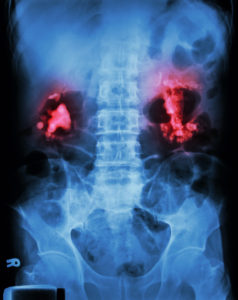Use of sestamibi SPECT/CT scan could spare patients with benign kidney tumors from unneeded surgery.
The latest in a series of studies led by researchers at Johns Hopkins Medicine shows that addition of a widely available, noninvasive imaging test called 99mTc–sestamibi SPECT/CT to CT or MRI increases the accuracy of kidney tumor classification. The research team reports that the potential improvement in diagnostic accuracy will spare thousands of patients each year in the United States alone from having to undergo unnecessary surgery.

The team reports that the sestamibi SPECT/CT test—short for 99mTc–sestamibi single–photon emission computed tomography/computed tomography(CT) — adds additional diagnostic information in conjunction with conventional CTs and MRI and improves physicians’ ability to differentiate between benign and malignant kidney tumors.
“Sestamibi SPECT/CT lets radiologists and urologists ‘see’ the most common benign kidney tumor, something CT and MRI have not succeeded in doing alone,” says Mohamad E. Allaf, MD, MEA Endowed Professor of Urology at the Johns Hopkins University School of Medicine. “This noninvasive scan may prevent patients with a potentially benign kidney tumor from having to undergo a surgery to remove the tumor or potentially the entire kidney, along with its associated risks and high costs. At Johns Hopkins, use of this test has already spared a number of our patients from unnecessary surgery and unnecessary removal of a kidney that would require them to be on dialysis. These results are hugely encouraging, but we need to do more studies.
For more information visit:
http://www.hopkinsmedicine.org/news/media/releases/noninvasive_imaging_test_shown_accurate_in_ruling_out_kidney_cancers

